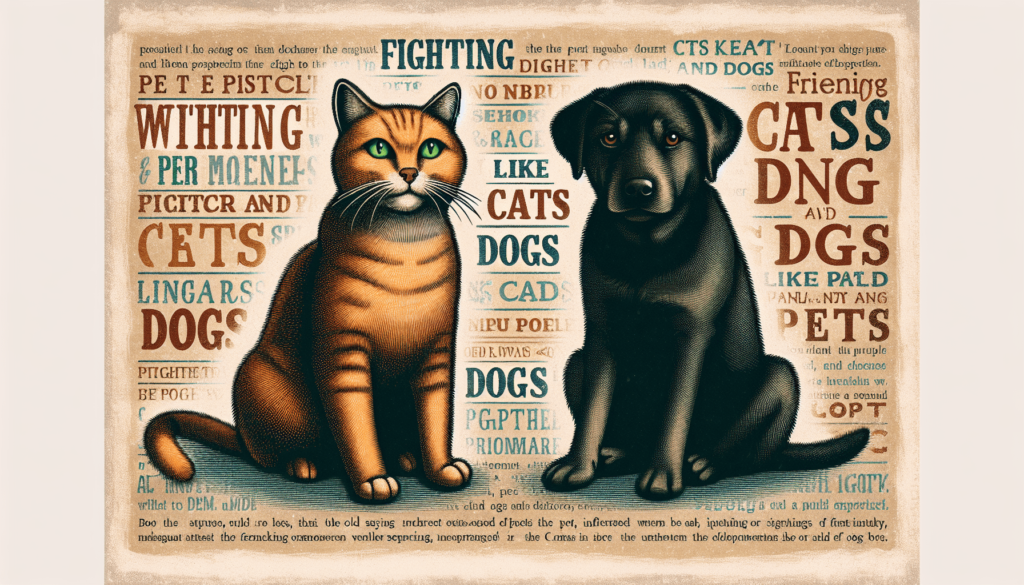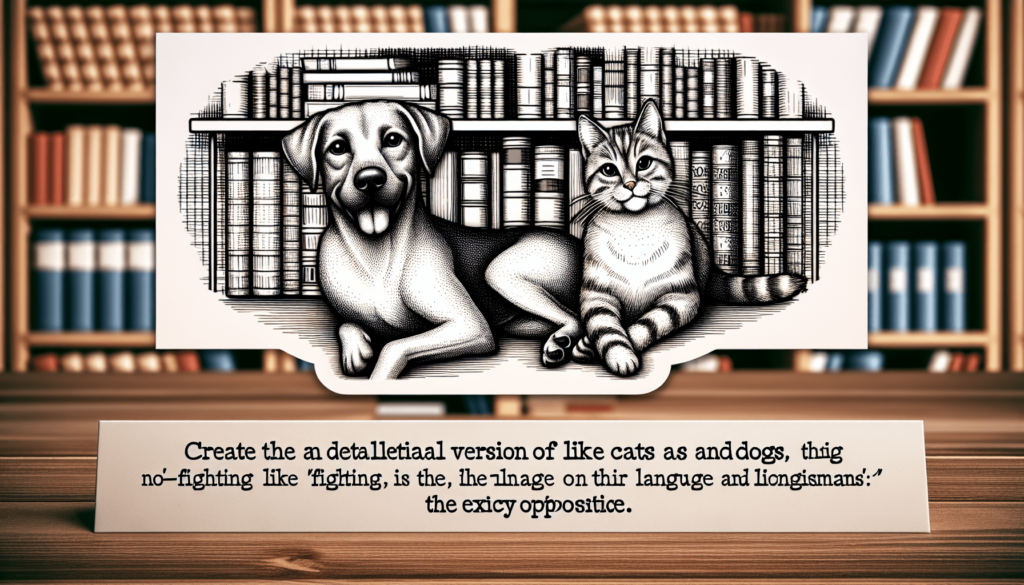How Pets Have Influenced Language And Idioms
Have you ever wondered how our furry friends have influenced the way we speak and the idioms we use in everyday language?
The Influence of Pets on Language
Pets have played a significant role in shaping our language and the idioms we use. From cats and dogs to birds and fish, animals have made a lasting impact on the way we communicate with each other.
Cats and Their Nine Lives
Have you ever heard the saying, “Curiosity killed the cat?” This popular idiom reflects the curious nature of cats and their tendency to get into mischief. Cats have been associated with mystery, independence, and agility, which have all found their way into our language.
Dogs: Man’s Best Friend
When we talk about loyalty and friendship, it’s hard not to think of dogs. Phrases like “dog tired” and “barking up the wrong tree” have become a part of our everyday speech, thanks to our faithful canine companions.
How Birds Have Inspired Language
Birds have also left their mark on our language, with idioms that reflect their unique characteristics and behaviors.
Early Bird Gets the Worm
The saying, “the early bird gets the worm,” emphasizes the importance of being proactive and taking action early. This idiom is inspired by the behavior of birds that wake up early to find food before other creatures.
Free as a Bird
When we talk about feeling liberated and unrestricted, we often use the phrase “free as a bird.” This idiom captures the sense of freedom and lightness that birds represent in our minds.

Fishy Language: How Fish Have Influenced Idioms
Fish may not be as popular as cats and dogs, but they have still made their mark on our language with idioms that have stood the test of time.
A Fish Out of Water
The saying “a fish out of water” is used to describe someone who is in an unfamiliar or uncomfortable situation. This idiom reflects the struggles of a fish removed from its natural habitat, trying to adapt to a new environment.
Slippery as an Eel
When we talk about someone who is elusive and hard to pin down, we often say they are “slippery as an eel.” This idiom captures the sneaky and evasive nature of eels, which have inspired the phrase.
Animal Idioms Around the World
Animals have influenced language and idioms not only in English but in languages around the world. Let’s take a look at some interesting animal idioms from different cultures.
Spanish: “Tener memoria de elefante”
In Spanish, the expression “Tener memoria de elefante,” which translates to “to have the memory of an elephant,” is used to describe someone with an exceptional memory. Elephants are known for their impressive memory, which has inspired this idiom in Spanish.
French: “Les carottes sont cuites”
The French idiom “Les carottes sont cuites,” which means “the carrots are cooked,” is used to convey the message that a situation is irreversible or beyond saving. This expression refers to the idea that once carrots are cooked, there’s no going back, reflecting the finality of certain circumstances.
Chinese: “马马虎虎”
In Chinese, the expression “马马虎虎” (mǎmǎhūhū) is used to describe something that is done carelessly or in a mediocre manner. This phrase literally translates to “horse horse tiger tiger,” reflecting a casual and lackadaisical attitude towards a task.

Fun Facts About Animal Idioms
Did you know that some popular animal idioms have interesting origins and stories behind them? Let’s explore some fun facts about these unique expressions.
Cat Got Your Tongue?
The phrase “cat got your tongue?” is often used when someone is silent or unable to speak. This idiom’s origins are unclear, but one theory suggests that it may have originated from the English navy, where cat-o’-nine-tails whips were used to punish sailors into silence.
Let the Cat Out of the Bag
When we reveal a secret or disclose information that was supposed to be kept private, we say we “let the cat out of the bag.” This idiom dates back to the 18th century when dishonest sellers would substitute a cat for a pig in a bag and then reveal the switch to unsuspecting buyers.
The Evolution of Animal Idioms
Language is constantly evolving, and so are the idioms we use to express ourselves. As society changes and new experiences shape our communication, animal idioms also adapt to reflect these shifts.
From Farm to Fridge: Modern Animal Idioms
With the rise of technology and urban living, our connection to animals has changed. Idioms like “kill two birds with one stone” are now being questioned for their violent connotations, leading to more inclusive and animal-friendly alternatives like “feed two birds with one scone.”
Animal Rights and Language
As our understanding of animal rights and welfare grows, the language we use to talk about animals also evolves. Terms like “beating a dead horse” are being reconsidered for their insensitive portrayal of animals, prompting a shift towards more compassionate and respectful language.
Conclusion
Pets have influenced our language and idioms in more ways than we realize. From cats and dogs to birds and fish, animals have left a lasting mark on the way we speak and the expressions we use to convey our thoughts and feelings. Next time you hear an animal idiom, take a moment to appreciate the unique connection between our furry friends and the evolution of language.

